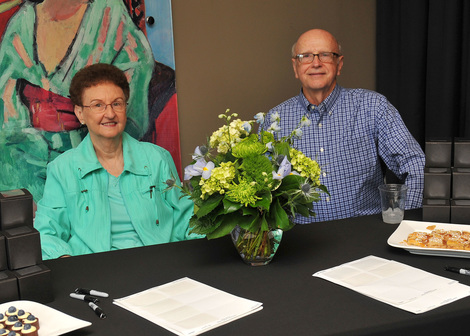Barbara Tucker and Duke Allen, LifeShare Advocates
TALKING POINTS
Language plays an important role in the misconceptions and fears about organ and tissue donation. Avoiding terminology that causes concern among families and the general public may not only help further their understanding, but also improves acceptance of the donation process.
|
Appropriate Terms
Recover Organs Deceased Donor Recovery of Organs Donation after Circulatory Death Mechanical or Ventilator Support Donated Organs and Tissue Deceased Donor |
Inappropriate Terms
Harvest Harvesting of Organs Non-heart beating donation Life Support Body Parts Cadaveric Donation Cadaver (in donation context) |
It is important to give the public accurate information that conveys a positive image of the donation process.
First Impressions
Your body language, tone of voice and words all communicate something about you or your message.
It takes seven seconds or less for you to make your first impression. Here are some basic suggestions to create a great first impression:
• Approach people with a pleasant smile
• Have a firm handshake
• Arrive promptly for scheduled events
Key Message Points
Please include this information whenever you talk about LifeShare or organ, eye and tissue donation:
• The need for donors
• The benefits of donation and transplantation
• Organs and tissue that can be donated
• Who can be a donor
• Some facts about donation
• Call to Action:
• Learn the facts
• Make a decision
• Register your decision
• Share your decision with your family
First Impressions
Your body language, tone of voice and words all communicate something about you or your message.
It takes seven seconds or less for you to make your first impression. Here are some basic suggestions to create a great first impression:
• Approach people with a pleasant smile
• Have a firm handshake
• Arrive promptly for scheduled events
Key Message Points
Please include this information whenever you talk about LifeShare or organ, eye and tissue donation:
• The need for donors
• The benefits of donation and transplantation
• Organs and tissue that can be donated
• Who can be a donor
• Some facts about donation
• Call to Action:
• Learn the facts
• Make a decision
• Register your decision
• Share your decision with your family

